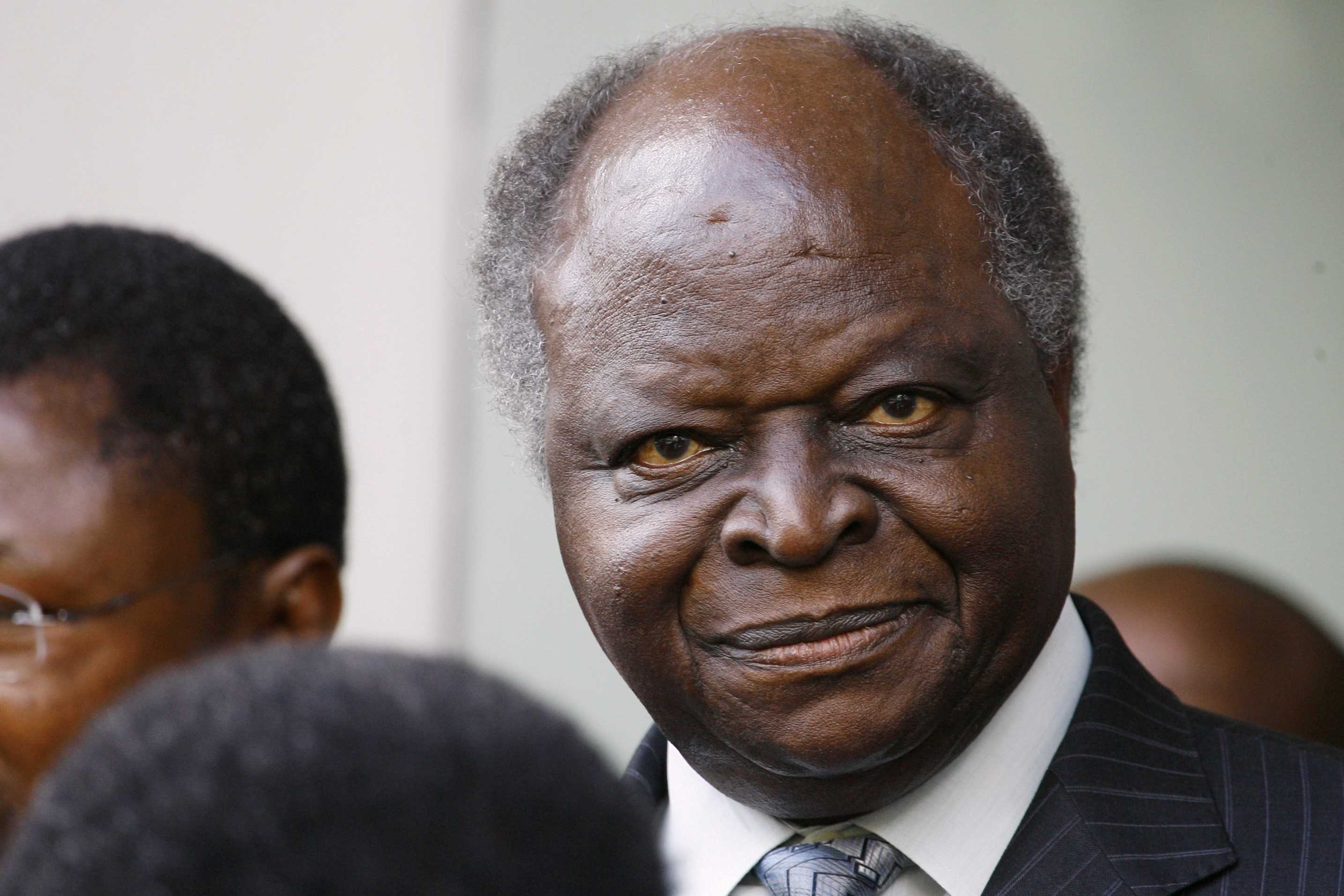
Welcome to a fascinating journey into the life of one of Kenya’s most enigmatic figures – Mwai Kibaki. From his early days as a student to his remarkable political career, Kibaki has left an indelible mark on the nation’s history. In this article, we’ll uncover 16 intriguing facts about this enigmatic leader, delving into his personal life, achievements, and lesser-known anecdotes. Get ready to explore the man behind the public image, as we peel back the layers of Kibaki’s life and uncover the unique experiences and contributions that have made him such a prominent figure in Kenyan politics. Prepare to be captivated by the untold stories and little-known facets of Mwai Kibaki’s remarkable journey.
Key Takeaways:
- Mwai Kibaki, Kenya’s 3rd President, transformed the country’s economy, promoted free primary education, and fought corruption, leaving a lasting impact on Kenya’s history and development.
- Known for his calm demeanor and commitment to youth empowerment, Mwai Kibaki’s leadership brought political stability and rural development to Kenya, shaping the nation’s future.
Mwai Kibaki transformed Kenya’s economy during his presidency.
Mwai Kibaki, the 3rd President of Kenya, implemented various economic reforms that played a pivotal role in the country’s development. Under his leadership, Kenya experienced significant growth and stability as he focused on infrastructure development, education reform, and attracting foreign investments.
He served as Kenya’s President from 2002 to 2013.
Mwai Kibaki’s presidency spanned over a decade, making him one of the longest-serving presidents in Kenyan history. During his tenure, he initiated numerous policies and programs aimed at improving the lives of Kenyan citizens.
Mwai Kibaki is celebrated for his role in promoting free primary education in Kenya.
One of his most notable achievements was the implementation of free primary education, which significantly increased access to education for millions of Kenyan children. This policy aimed to eradicate illiteracy and create equal opportunities for all.
He was born on November 15th, 1931, in Gatuyaini, Othaya, Kenya.
Mwai Kibaki was born in a small village in central Kenya and grew up in a humble background. His upbringing instilled in him values of hard work, determination, and a commitment to serving his nation.
Prior to his presidency, Mwai Kibaki held several key government positions.
Before assuming the presidency, Kibaki served as the Vice President of Kenya from 1978 to 1988 and again from 2002 to He also held various ministerial roles, contributing to the governance and development of the country.
Mwai Kibaki played a crucial role in the fight against corruption in Kenya.
During his presidency, Mwai Kibaki prioritized the fight against corruption, establishing institutions and mechanisms to tackle this pervasive issue. His efforts earned him international recognition and praise for his commitment to transparency and accountability.
He is a respected economist and holds a degree in Economics from the London School of Economics.
Mwai Kibaki’s academic background in economics equipped him with the knowledge and expertise to implement effective economic policies in Kenya. His education played a significant role in shaping his approach to governance and decision-making.
Under his leadership, Kenya experienced a period of relative political stability.
Mwai Kibaki’s presidency marked a period of relative calm in Kenyan politics. His leadership style, characterized by consensus-building and inclusivity, helped foster a sense of unity and stability in the country.
Mwai Kibaki is known for his soft-spoken and reserved demeanor.
Unlike some charismatic politicians, Kibaki’s calm and composed nature earned him respect and admiration from both his supporters and political opponents. His measured approach to leadership was a defining characteristic of his presidency.
He played a crucial role in the establishment of the African Union.
Mwai Kibaki actively contributed to the formation of the African Union, an organization aimed at promoting unity and development across the African continent. His diplomatic skills and commitment to pan-Africanism helped shape the organization’s vision and objectives.
Mwai Kibaki received numerous accolades and recognition for his leadership.
During and after his presidency, Mwai Kibaki was honored with various awards and accolades. These include the prestigious Mo Ibrahim Prize for African Leadership, which is awarded to former African heads of state who have demonstrated exceptional leadership and governance.
He championed rural development initiatives during his presidency.
Mwai Kibaki recognized the importance of rural development in fostering balanced economic growth. His administration implemented policies and projects aimed at improving infrastructure, healthcare, and access to social services in rural areas.
He emphasized the role of youth in nation-building.
Mwai Kibaki understood that the youth are the future of any nation. He implemented youth empowerment programs, providing opportunities for skill development, entrepreneurship, and employment to harness the potential of Kenya’s young population.
Mwai Kibaki hails from the Kikuyu ethnic community in Kenya.
As a member of the Kikuyu community, Kibaki garnered significant support from his ethnic group during his political career. However, he also emphasized the importance of national unity and inclusivity throughout his presidency.
He retired from active politics after completing his second term as president.
Mwai Kibaki adhered to Kenya’s constitutional term limits and gracefully stepped down from the presidency in Since then, he has maintained a relatively low profile, focusing on his personal life and philanthropic endeavors.
Mwai Kibaki’s leadership and legacy continue to have a lasting impact on Kenya.
The enigmatic 16 facts about Mwai Kibaki highlight his significant contributions to Kenya’s progress and development. His achievements as a leader, economist, and advocate for education and transparency have left an indelible mark on the nation’s history.
Conclusion
In conclusion, Mwai Kibaki, the former President of Kenya, is a fascinating figure with a multitude of enigmatic facts surrounding his life and career. From his early beginnings as a teacher to becoming one of the most influential political leaders in the country, Kibaki’s journey is filled with intrigue and accomplishments. His leadership during his presidency brought about significant changes in Kenya, particularly in the areas of education, healthcare, and infrastructure development.
Throughout his life, Kibaki demonstrated a resilient and determined spirit, overcoming various challenges and leaving a lasting impact on the nation. His remarkable leadership skills and commitment to the betterment of Kenya have earned him both admiration and respect from many. Mwai Kibaki’s enigmatic persona will continue to captivate the minds of people, as they delve deeper into the intricacies of his life and legacy.
FAQs
Q: What were Mwai Kibaki’s notable achievements as the President of Kenya?
A: Mwai Kibaki achieved notable milestones during his presidency, including improved access to education, the introduction of free primary education, expansion of healthcare facilities, and the construction of major infrastructure projects like roads and dams.
Q: How long did Mwai Kibaki serve as the President of Kenya?
A: Mwai Kibaki served as the President of Kenya from 2002 to 2013. He was re-elected for a second term in 2007.
Q: What was Mwai Kibaki’s background before entering politics?
A: Before entering politics, Mwai Kibaki had a career in academia. He was a renowned economist and served as an economics lecturer at the University of Nairobi and later as the Vice President of the World Bank for Africa.
Q: What is Mwai Kibaki’s legacy in Kenya?
A: Mwai Kibaki’s legacy in Kenya includes significant advancements in healthcare, education, and infrastructure development. His administration focused on improving the lives of Kenyan citizens by implementing policies that fostered economic growth and development.
Q: Was Mwai Kibaki involved in any major political reforms?
A: Yes, during his presidency, Mwai Kibaki played a pivotal role in the implementation of the new constitution in Kenya, which aimed to strengthen governance, promote democracy, and protect human rights.
Mwai Kibaki's enigmatic life and presidency continue to inspire curiosity. Uncover more fascinating stories, like how U.S. presidents have graced currency, or delve into the intriguing world of African political figures. For a change of pace, explore how cities like Roanoke, Virginia, have experienced transformative growth through innovation and technology.
Was this page helpful?
Our commitment to delivering trustworthy and engaging content is at the heart of what we do. Each fact on our site is contributed by real users like you, bringing a wealth of diverse insights and information. To ensure the highest standards of accuracy and reliability, our dedicated editors meticulously review each submission. This process guarantees that the facts we share are not only fascinating but also credible. Trust in our commitment to quality and authenticity as you explore and learn with us.


